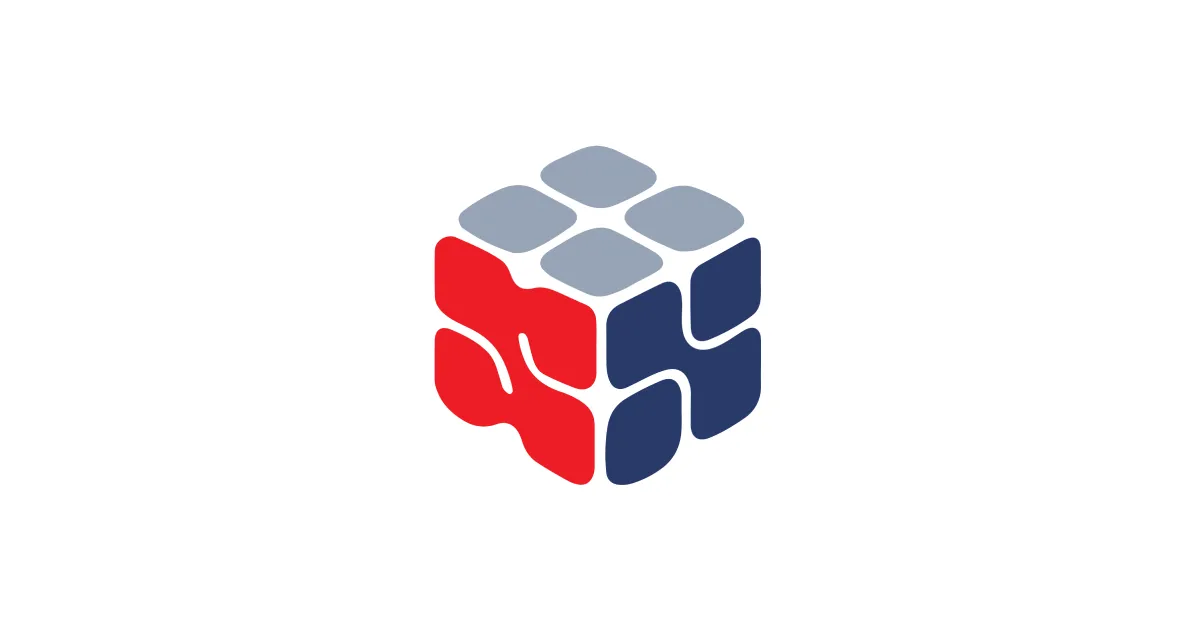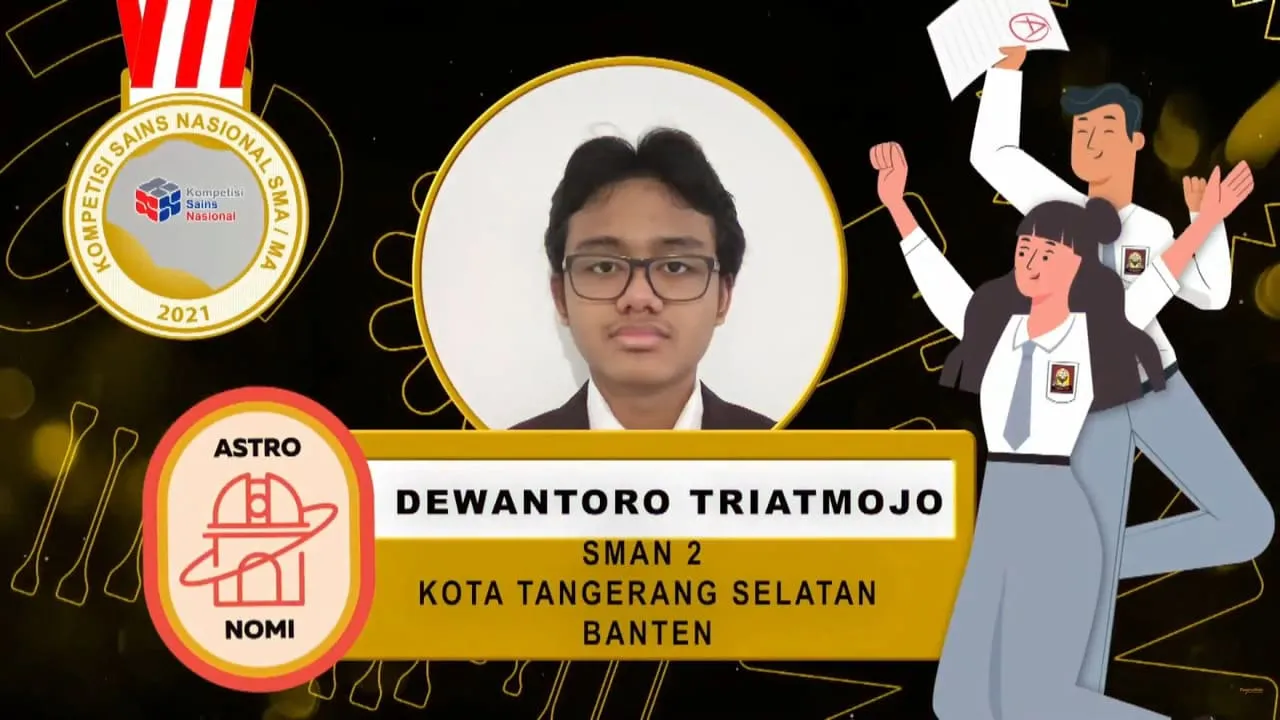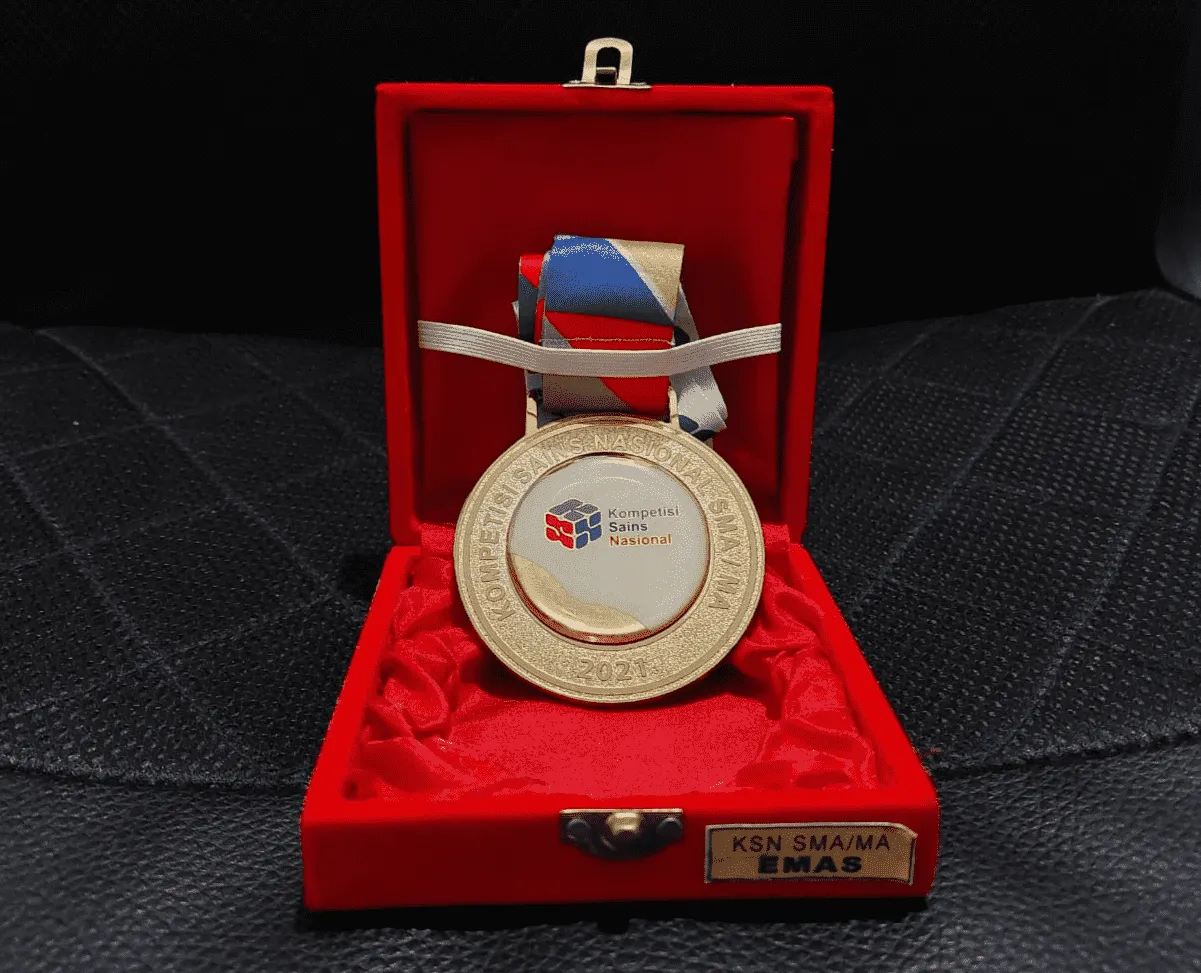
🥇 Gold KSN Astronomy
KSN (or OSN) is a science competition for Indonesian students held by the Indonesian Ministry of Education and Culture.
Description
The National Science Olympiad (OSN) is a talent competition in the field of science organized for students at the elementary (SD/MI), junior high (SMP/MTs), and high school (SMA/MA) levels, including their equivalents. The OSN is held in multiple stages, starting from regional levels up to the national level, to identify the best participants from 38 provinces. This tiered mechanism ensures equal and fair opportunities for students across Indonesia to achieve excellence and become potential talents.
Experience
KSK (Regency Stage)
After winning KSN 2020 , I had two options: join Pelatnas 1 Astronomy or compete in KSN 2021. The rule was that if I joined Pelatnas, I couldn't participate in KSN again. I chose to compete in KSN 2021 because I thought, why not aim for a gold medal and enjoy the cash prize? So, I decided to give KSN another shot.
I didn't do much preparation for KSK. I only began studying and reviewing the materials seven days before the competition. I had already mastered the subjects the previous year, so I focused on other topics. My school provided an online tutorial with Kak Hammam . The competition was held online using a CBT format, with most problems being multiple-choice or true/false questions, which weren't very challenging. I don't remember much about the problems, but I do remember going to a glasses store with my mom after the competition because my prescription had changed. Nonetheless, on the announcement day, I advanced to KSP. I wasn't alone; another student from my school, Rachel , also passed.

KSP (Province Stage)
Similar to KSK, I didn't do much preparation for KSP. I only started studying and reviewing the materials seven days before the competition. My school provided another online tutorial with Kak Hammam. The competition was held online using a CBT format. The problems included short-answer and multiple-choice questions. On the announcement day, I succeeded in advancing to KSN, although Rachel, unfortunately, did not make it.

KSN (National Stage)
Unlike the previous stages, I took KSN 2021 very seriously. I began preparing a month before the competition. My school provided an offline tutorial with Kak Hammam, whose problem sets were quite challenging. While I didn't learn many new things, I thoroughly reviewed the materials and techniques.
On the day of the competition, each participant had to compete at their respective schools. I was assigned a spot in the second-floor computer lab at my school.
For the theoretical section, there were seven essay problems. I recall this being the first competition to include a problem about celestial mechanics and hyperbolic orbits, which I handled well. One challenging problem involved coordinate systems, and although I wasn't sure if my answer was correct, I did my best with a few assumptions.
The analytical data section consisted of two problems. We were allowed to use Microsoft Excel. The first problem was relatively simple and short, involving dead-time correction. The second problem required applying multiple linear regression to predict asteroid diameters. I remember making a miscalculation in the second part of the second problem, which forced me to restart. However, I managed to finish it ten minutes before time was up, and I think I did well.
For the observation part, I expected more practical observation tasks like identifying constellations, but it was mostly calculations, which I enjoyed. There were two sessions: synchronous and asynchronous. The synchronous session consisted of two questions answered via Zoom with the assistant jury, while the asynchronous session had one essay question. I did well in this part and was relieved when it was over, finishing around 9 p.m. at school.
In the end, I was awarded a Gold Medal. KSN was a fun and rewarding experience, allowing me to meet many brilliant students from other schools. I was also happy that several other members of the Astronomy Elites received medals. I want to thank Kak Hammam for his tutoring.








